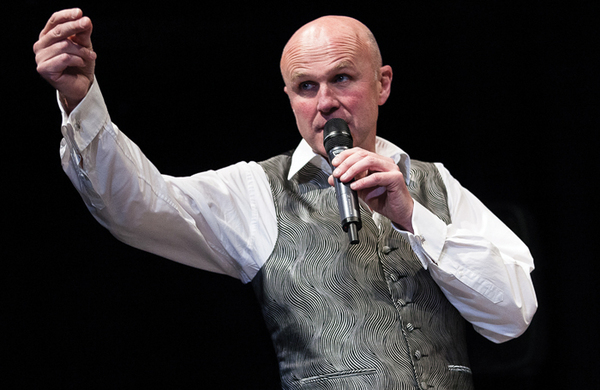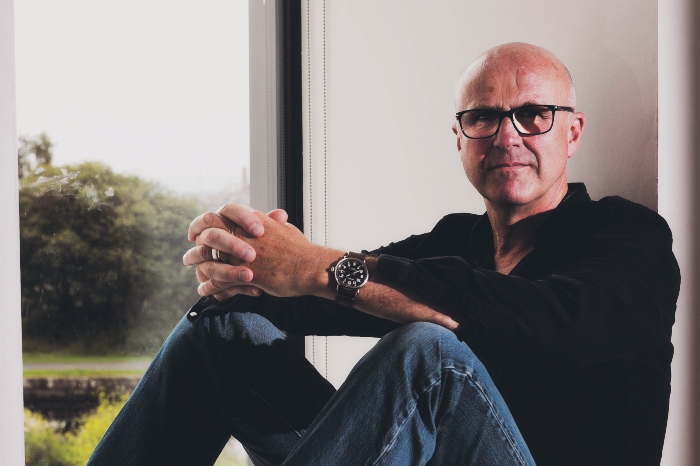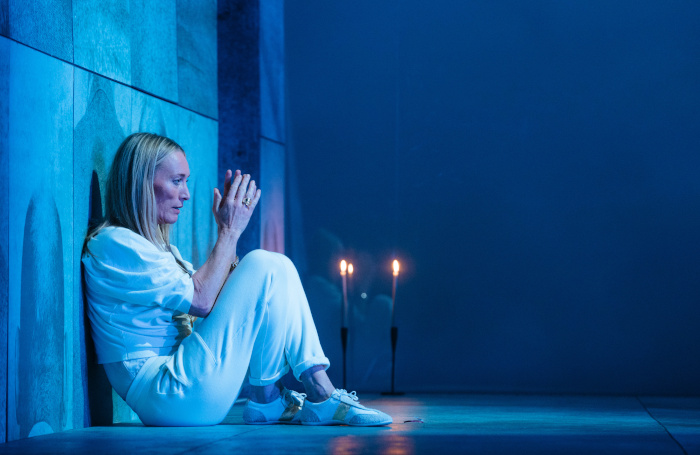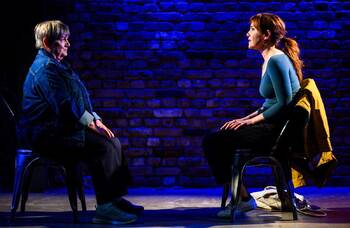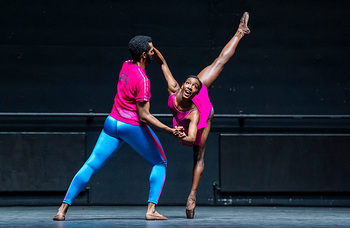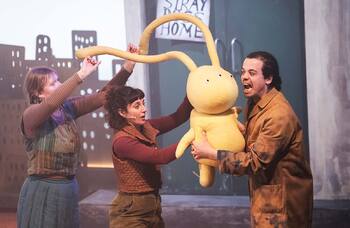Truth’s a Dog Must to Kennel review
Tim Crouch uses theatre as a metaphor to ask whether the show must go on or if we can change the ending
In Act I of King Lear, the Fool is chastised by Lear for questioning his judgement. He retorts: “Truth’s a dog must to kennel.” The dog will be whipped for speaking truth to power. Tim Crouch is unlikely to be hounded out of town for this latest piece, which asks whether faith and imagination serve purpose in a world undone.
By Act III of King Lear, the Fool has left the stage. The world has become a wasteland. The jokes have run out. Nothing is funny anymore. People die, the world collapses, but the play goes on to its bitter end – just as our own world goes on in the face of catastrophe. Like Lear, we and our leaders are bringing disaster down upon ourselves.
The latest from the creator of such brilliant conceptual shows as My Arm and An Oak Tree takes place in the bare Lyceum Studio. It’s a cerebral, often uncomfortable, show that is sometimes hard work to watch. But stay with it. Theatre shouldn’t all be easy optimism.
On stage alone, only with Pippa Murphy’s cleverly unobtrusive soundscape for company, Crouch peers through a pair of virtual-reality glasses, apparently watching a performance of King Lear that is unfolding in another theatre.
It’s the kind of theatre that has patron’s events, platinum-membership schemes and glossy programmes. We become the audience at that show: the chancer who has swapped seats; the man who ate too much truffled gnocchi pre-show and has terrible indigestion. There are some sharp jokes about theatre and its inequalities: its mantra to “come back better” after the pandemic, but its refusal to really change.
So far, so entertaining. But if these 70 minutes were only about the corpse-like state of theatre, its inability to change itself, let alone change the world, or whether digital is keeping people away from live performance, this would be only so much navel-gazing.
But it’s not. Theatre is a microcosm of the world and here it serves as a metaphor. Do we give in to despair and leave the stage to retreat to the screen in our living rooms, or do we go on? Even when it’s not funny anymore. When people are dying. Perhaps the play is unstoppable, but might we reimagine its ending?
It feels as if Crouch is answering his own question by gathering us together in an empty space, taking the piss out of us a bit, but also in that very act proving that we have this mighty facility to imagine different worlds. Maybe something can come of nothing.
The question that lingers is whether we – and theatre itself – have the courage and bravery to take power out of the theatre and into the world. If not, maybe we should all depart the stage.
More Reviews
Recommended for you
More Reviews
Recommended for you
Most Read
Across The Stage this weekYour subscription helps ensure our journalism can continue
Invest in The Stage today with a subscription starting at just £7.99

